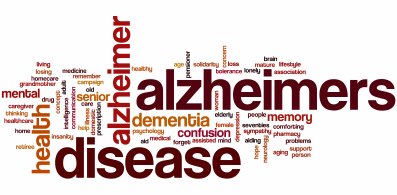Dementia vs. Alzheimer's Disease:
Is Alzheimer's a Form of Dementia?
They both include symptoms such as impaired cognition, communication, and motor function, and they both are more likely to affect older adults, although they can occur in younger patients as well.
However, they also have significant differences that are important to understand, especially if you have a loved one who has or may have one or the other.
Is Alzheimer's a Form of Dementia?
Alzheimer's disease is a type of dementia that causes problems with memory, thinking and behavior. Symptoms usually develop slowly and get worse over time, becoming severe enough to interfere with daily tasks.
What is Alzheimer's Disease?
Alzheimer's is a type of dementia that affects memory, thinking and behavior. Symptoms eventually grow severe enough to interfere with daily tasks.
Alzheimer's is the most common cause of dementia, a general term for memory loss and other cognitive abilities serious enough to interfere with daily life. Alzheimer's disease accounts for 60-80% of dementia cases.
Unlike
some other forms of dementia, Alzheimer's is not curable, and the
damage it causes is permanent. One symptom of the disease involves
abnormal protein deposits in the brain, which cause hardened plaques
and tangled nerves. This disrupts brain functioning, and can even
cause the brain to shrink in severe cases.
Doctors can tell whether patients have Alzheimer's disease or another type of dementia by using a series of screenings, including brain scans, blood tests, and evaluations of the patient's mental functioning.
However, no test is completely accurate except a manual check for abnormal protein deposits in the brain, which can only occur during an autopsy after death. Approximately 90% of diagnostic tests outside of an autopsy are accurate.
What It Is Dementia?
As scary as it sounds, a diagnosis of dementia is not always terrible news. Dementia can be caused by a variety of problems, sometimes something as simple as a vitamin deficiency, or a reaction to a new drug.
Some forms of dementia can be cured as easily as adjusting a medication prescription or adjusting diet, and may not have permanent effect - especially if the problem is caught in time.
Dementia
doesn't refer to one specific disease. Instead, it refers to a whole
host of ailments that affect thought, communication and daily
functioning. Diseases categorized under "dementia" often come with
serious cognitive declines and the degradation of memory.
Diseases
that cause dementia include: Parkinson's Disease,
Creutzfeldt-Jakob Disease, Huntington's Disease, dementia with Lewy
Bodies, vascular dementia, and Alzheimer's. Most
diseases that cause dementia present similarly, almost identically.
However,
there are some differences if you know what to look for, especially
in the early stages. Early Alzheimer's
disease, for example, is usually characterized by forgetfulness. Other symptoms
can include repetition of the same stories and questions, often word
for word; confusion; and changes in personality.
With dementia with Lewy Bodies, for instance, patients see a reduced attention span, repeating visual hallucinations, and temporary periods of confusion, as well as rigid muscle movements similar to Parkinson's Disease. Early Alzheimer's disease is typically characterized by a forgetfulness not always seen in dementia with Lewy Bodies, although this can vary.
Vascular dementia, which can occur after a heart attack or stroke, is characterized by a marked impairment in judgment in the early stages, although symptoms can vary depending on the part of the brain affected by damaged blood vessels.
Frontotemporal dementia, which is a degeneration of the cells in the brain's frontal lobes caused by a variety of rarer diseases, is typically characterized by changes in personality in the early stages.
However, the difference between all of these and other causes of dementia can be subtle, even in the early stages, they tend to look more similar as the disease progresses. Usually, when a patient receives an initial diagnosis of dementia, they are getting diagnosed for a set of symptoms, such as when the doctor can see there's a rash, but does not know whether the underlying cause is a disease, an allergy, or some other ailment.
Doctors can identify the impaired cognition, functioning, or communications that come along with dementia, but it takes more work to discover what is causing these symptoms.
In summary, dementia and Alzheimer's disease can look very similar, but they are not the same. Simply put, Alzheimer's disease is one out of many causes of dementia. Not all types of dementia are a life sentence, but Alzheimer's is a disease that affects patients for the rest of their lives, and is one of the worse diagnoses to get. Unfortunately, it is also the most common. Even so, knowing the differences between these two terms can help you plan for the future and understand the progression of your or your loved one's disease.
Related Articles:
- Signs of Early On-Set Alzheimer's
- Dementia Care: Tips for Communicating with Your Loved One
- Five Serious Elderly Health Disorders
- Age Related Memory Loss: Possible Causes
- How to Choose an Alzheimer's Care Facility
- How to Pay for Memory Care
- What is Memory Care? Benefits of Memory Care Facilities
- Dementia and the Music Therapy Connection
- Signs & Symptoms of Sundowning
- The Montessori Method for Dementia Care
- Alzheimer's Risk Factors and Prevention
- Aerobic Exercise and Dementia
- GPS Tracking Device's for Alzheimer's Patients
- Signs and Symptoms of Alzheimer's
Home | About | Articles | Resources | Site Map | Privacy Policy
Elder Options of Texas
Copyright 2001-2024
All Rights Reserved
DISCLAIMER: Links to other websites or references to products, services or publications do not imply the endorsement or approval of such websites, products, services or publications by Elder Options of Texas. The determination of the need for senior care services and the choice of a facility is an extremely important decision. Please make your own independent investigation.




